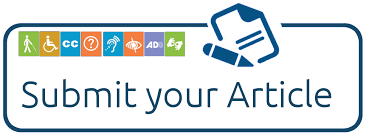The Family Hope Program (PKH) in Lembantongoa Village, Palolo Subdistrict, Sigi Regency from the Perspective of Effectiveness
Main Article Content
Rahma*
Failur Rahman
Laendatu Paembonan
Mukthar Tallesang
Musdayati
Poverty reduction continues to be an important goal in Indonesia's plan for progress, and the Family Hope Program (PKH) was created as a way to give money to poor families in order to help improve their well-being. This research looks at how well PKH is working in Lembantongoa Village, in Palolo Subdistrict, Sigi Regency, where the program has been in place since 2016. This type of research is descriptive qualitative research. The informants for this research are PKH Companions and PKH Recipients. Data was obtained through observation, interviews and documentation. PKH financial assistance in Lembantongoa Village is sufficient to help the economy of the Poor Households (RTM) in the areas of health for pregnant women and toddlers as well as children's basic education, in accordance with the objectives of implementing PKH. From the results of the research that researchers have conducted in the field, it shows that the stages of achieving the objectives of implementing PKH have been carried out well and are in accordance with the objectives and also the implementation of the PKH Family Hope Program (PKH) in Lembantongoa Village has improved the welfare of PKH beneficiaries.
Annisa, A. (2020). Efektifitas Program Keluarga Harapan Dalam Kesejahteraan Masyarakat Di Kelurahan Sungai Besar Kecamatan Banjarbaru Selatan. Doctoral dissertation, Universitas Islam Kalimantan MAB.
Astari, U. T. (2018). Efektifitas Program Keluarga Harapan Dalam Upaya Penanggulangan Kemiskinan di Kecamatan Pandak Bantul. Jurnal Fakultas Ilmu Sosial, Karangmalang, Yokyakarta.
Handoko, T. H. (2016). Manajemen personalia dan sumberdaya manusia. Bpfe.
Kala, P. R., & Jannah, R. (2023). Analysis of the Effectiveness of the Family Hope Program on Stunting in Children Aged 24–36 Months in Kuta Baro Sub-District, Aceh Besar District. PHARMACOLOGY MEDICAL REPORTS ORTHOPEDIC AND ILLNESS DETAILS (COMORBID), 2(3), 2. https://doi.org/10.55047/comorbid.v2i3.1103
Lexy, J. M. (2002). Metode penelitian kualitatif. Bandung: Rosda Karya.
Muin, R., & Rosdiana, R. (2020). Efektivitas Program Keluarga Harapan (Pkh) Terhadap Penerima Bantuan Di Desa Laliko Kecamatan Campalagian Kabupaten Polewali Mandar. J-Alif: Jurnal Penelitian Hukum Ekonomi Syariah Dan Budaya Islam, 5(2), 130–147.
Notowidagdo, R. (2022). Pengantar Kesejahteraan Sosial: berwawasan iman dan takwa. Amzah.
Purwanto, S. K. (2018). Statistika untuk ekonomi dan keuangan modern.
Setiawan, D., & Hamidsyukrie, Z. M. (2023). Efektivitas Program Keluarga Harapan Dalam Upaya Meningkatkan Kesejahteraan Masyarakat di Desa Kabar Kecamatan Sakra Kabupaten Lombok Timur. Pendas: Jurnal Ilmiah Pendidikan Dasar, 8(3), 2800–2813.
Sinaga, A. A. P. (2022). Poverty Perspectives and Reduction Strategies in Indonesia. Three Seas Economic Journal, 3(3). https://doi.org/10.30525/2661-5150/2022-3-1
Siregar, A., Sufiawan, N. A., & Saibah, B. R. A. M. (2022). Analisis Efektivitas Program Keluarga Harapan Dalam Menanggulangi Kemiskinan Di Payakumbuh. Jurnal Ekonomi Pembangunan STIE Muhammadiyah Palopo, 8(1), 52–68.
Spicker, P. (2013). Principles of social welfare: an introduction to thinking about the welfare state. Paul Spicker.
Sugiyono. (2017). Metode Penelitian Penelitian Kuantitatif, Kualitatif dan R&D. Alfabeta.
Tamboto, H., Manongko, A., Ch, A., & Manengkey, J. (2018). Poverty alleviation based on economic literacy and social capital in improving economic welfare in coastal communities North Minahasa Regency, North Sulawesi Provence, Indonesia. http://103.123.108.111/bitstream/123456789/232/1/3. Jurnal Internasional DPRM 2018.pdf
Zwikael, O., Chih, Y.-Y., & Meredith, J. R. (2018). Project benefit management: Setting effective target benefits. International Journal of Project Management, 36(4), 650–658.
















